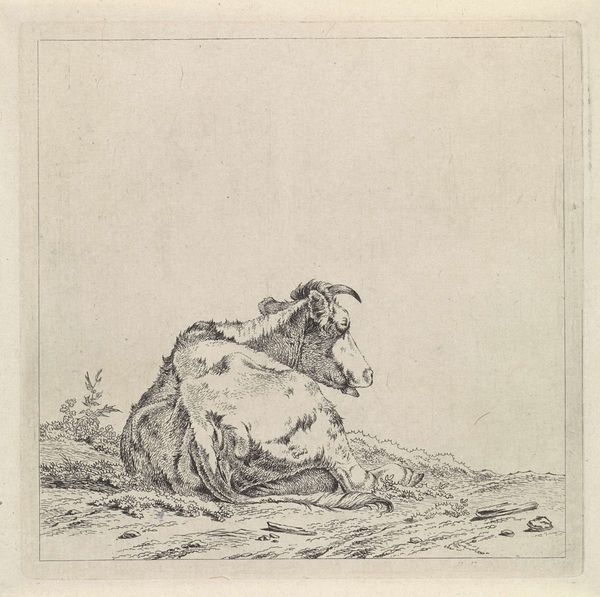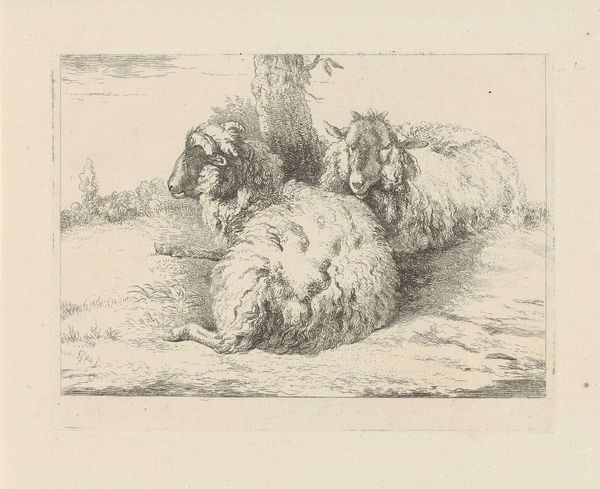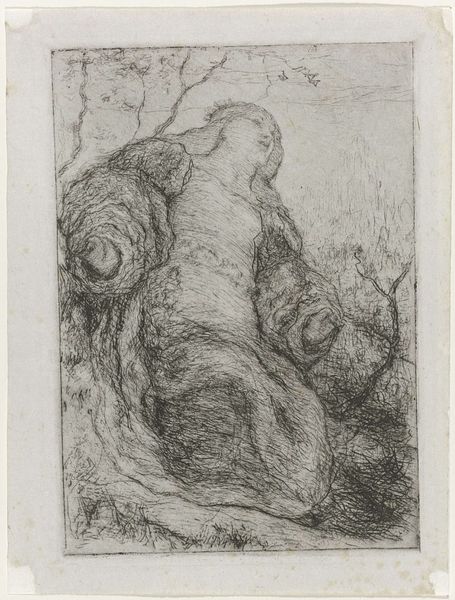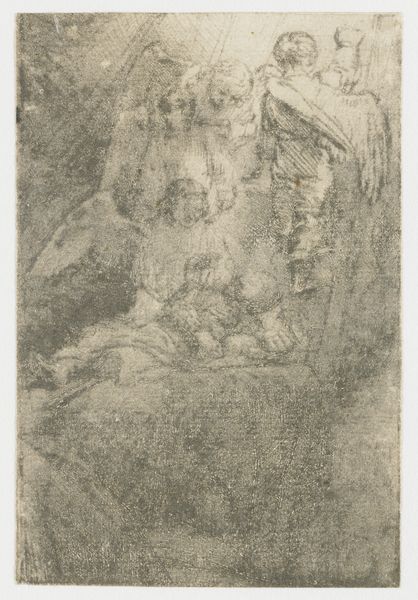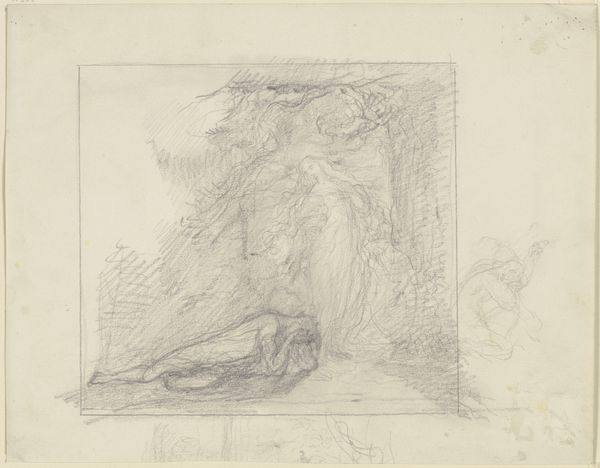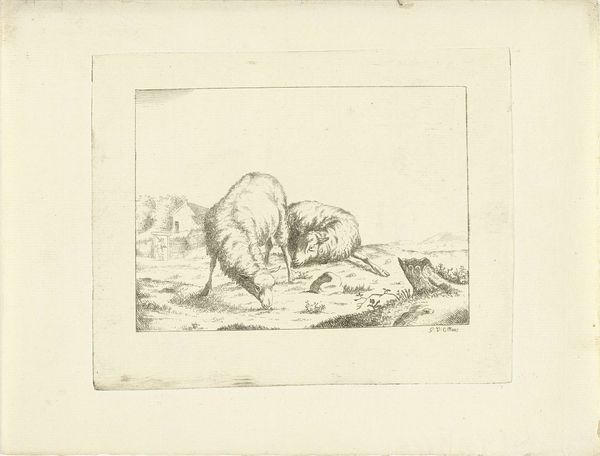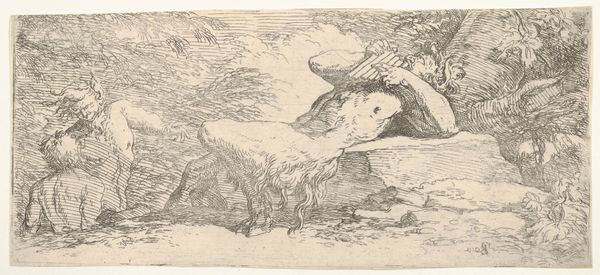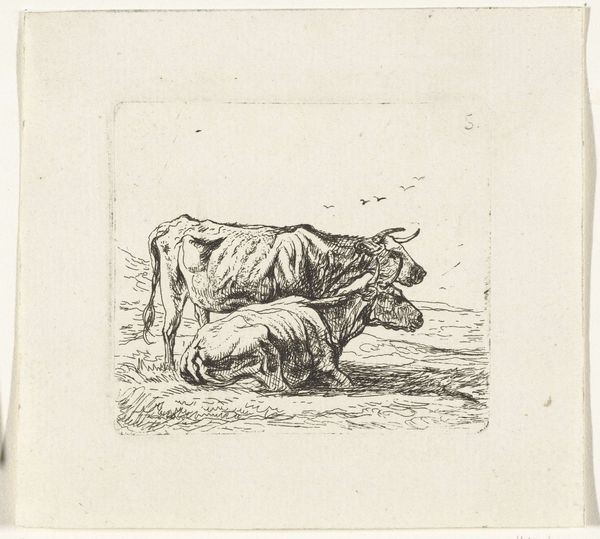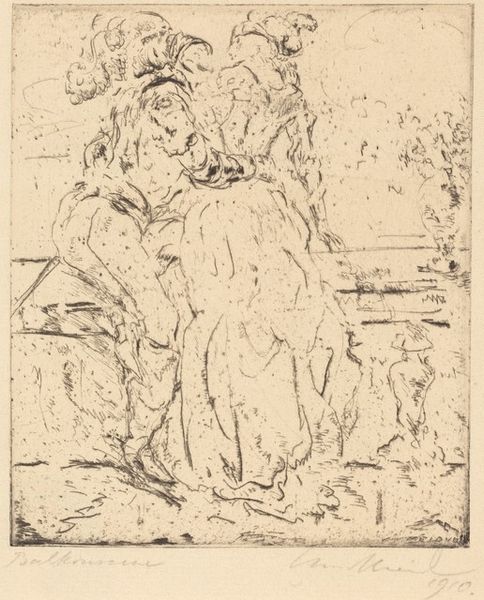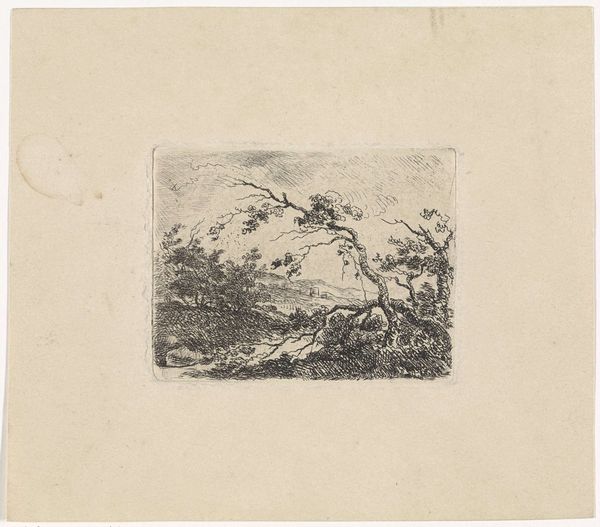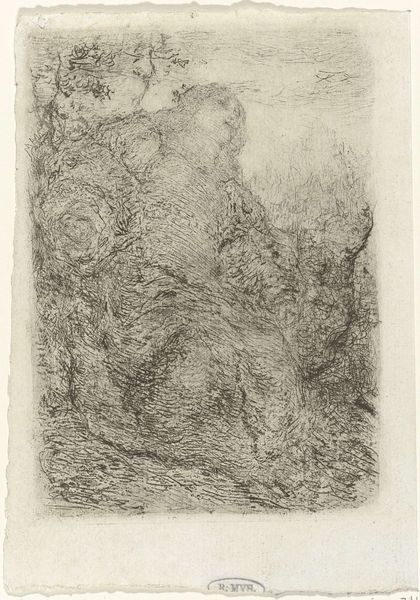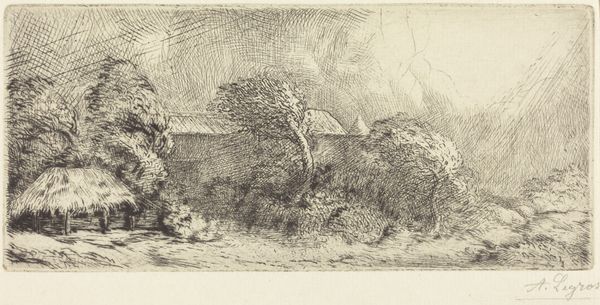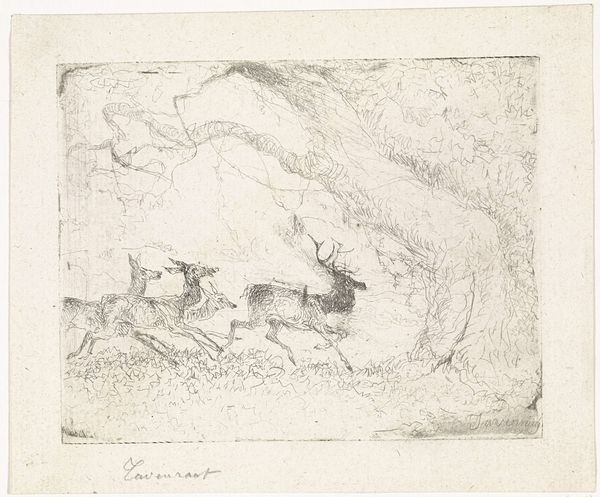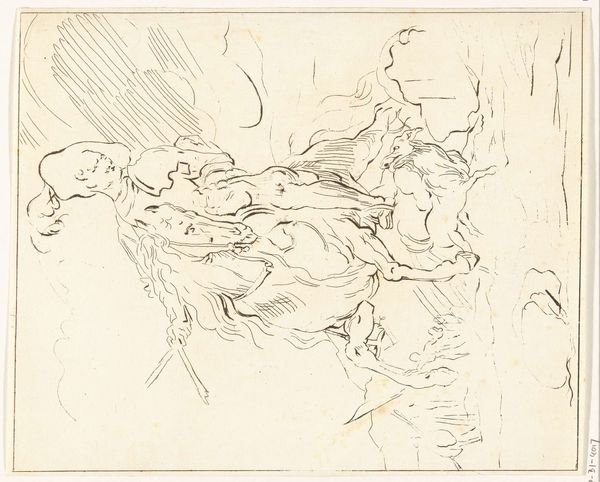
drawing, pencil
#
drawing
#
amateur sketch
#
light pencil work
#
pencil sketch
#
incomplete sketchy
#
landscape
#
figuration
#
personal sketchbook
#
idea generation sketch
#
sketchwork
#
romanticism
#
pen-ink sketch
#
pencil
#
sketchbook drawing
#
realism
#
initial sketch
Dimensions: height 90 mm, width 102 mm
Copyright: Rijks Museum: Open Domain
Curator: Before us, we have a work from between 1791 and 1839 by Pieter Gerardus van Os, entitled “Liggend schaap en ram,” housed here at the Rijksmuseum. It’s rendered in pencil on paper. Editor: There's a tentative, almost fragile quality to it. The pencil work is incredibly delicate, creating a very light and airy composition, though unfinished, perhaps? Curator: Indeed. This drawing exemplifies van Os’s exploration of realism within the Romantic period. Look at the precision in his depiction of the animals’ forms. The texture of the sheep’s wool, for example, achieved through a masterful use of line and shading, and consider its bucolic subject matter. Editor: It's fascinating how he uses varying line weights to create depth, especially in the foreground. It reminds me that at this period, land enclosure movements changed traditional farming practices, perhaps van Os idealises pastoral settings in contrast? The museum context, the elite circles of collectors that would eventually acquire drawings like these – it creates a dialogue, doesn't it? Curator: Certainly. Van Os came from a family of artists; his father was a renowned painter of flowers and fruit. He deliberately distanced himself, studying animal anatomy to elevate his own naturalism. I am especially taken with the formal composition—how the reclining ram commands our view. Editor: But its rough style contrasts neatly against the later hyperrealist tradition that followed. There’s something profoundly affecting in this work. Its existence within these museum walls and gallery contexts today influences how we understand themes around animals and labor, even now. Curator: An insightful perspective on an artwork that I, too, now regard in new light. Editor: The play of light, the balance... its quiet elegance lingers in the mind.
Comments
No comments
Be the first to comment and join the conversation on the ultimate creative platform.
